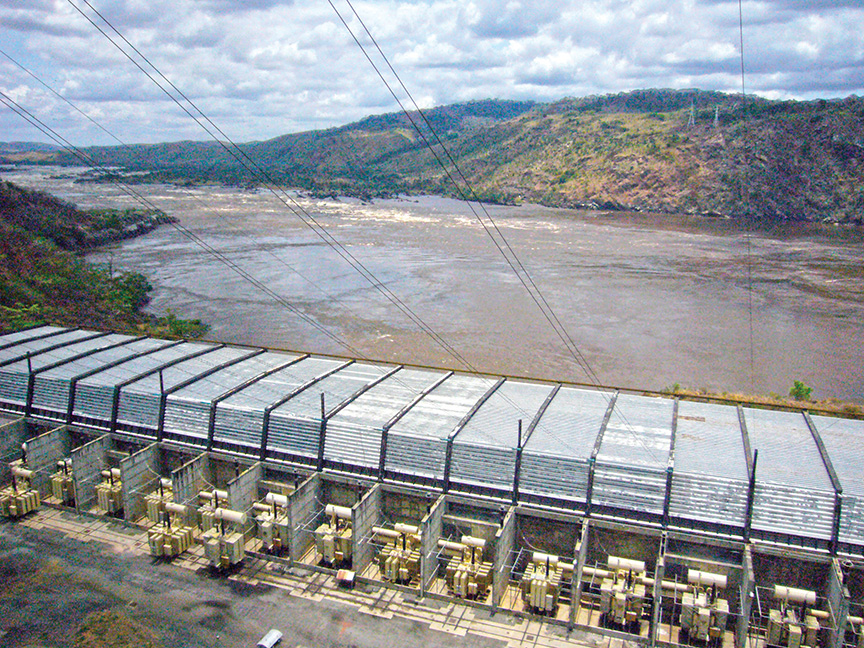REUTERS
Deep in the bowels of the giant Inga hydroelectric dam that straddles the mighty Congo River stands a fading map named “The motorways of electric power from Inga.”
From a dot in the western Democratic Republic of the Congo (DRC), lines extend across the African continent. They run south through Zambia, Zimbabwe and South Africa, and north to Sudan and Libya, reaching as far as Morocco.
For decades, governments dreamed of harnessing the Congo River’s enormous energy at the Inga rapids with an expansion of the dam that is large enough to power half of Africa. Years of conflict and misrule in Congo meant the project was never realized. Instead, in the cavernous halls of Inga’s two dams, water drips from the ceiling and rusted pipes sit above puddles. Five of the 14 turbines no longer spin at all, a sign of the decay.
A deal with South Africa has revived talk of the giant hydro project, which could power a continent full of expanding economies. “We had to find a buyer for this energy. Otherwise we cannot build Inga,” said Bruno Kapandji, Congo’s minister of energy and hydropower. “South Africa is a solvent and credible buyer.”
After a year of talks, South Africa promised to buy at least half the electricity from Inga III, a $12 billion dam that, once built, will produce 4,800 megawatts (MW). Much of the rest of the energy produced may go to the DRC’s power-starved mining industry.
The amount is nearly three times of what is produced by Inga’s two existing dams, which are decades old and have been crippled by neglect, government debt and risk-averse investors.
Success for Inga III would help to raise investors’ confidence in the remaining five stages of the Grand Inga project. At an estimated cost of $50 billion to
$80 billion, Grand Inga would produce 44,000 MW, dwarfing all other hydroelectric projects in the world, including China’s Three Gorges Dam.
“This incredible feat of human ingenuity, when completed, will have the capacity to power Africa, and, indeed, to export electricity beyond the continent,” South African President Jacob Zuma said at a signing ceremony in Kinshasa, DRC.

